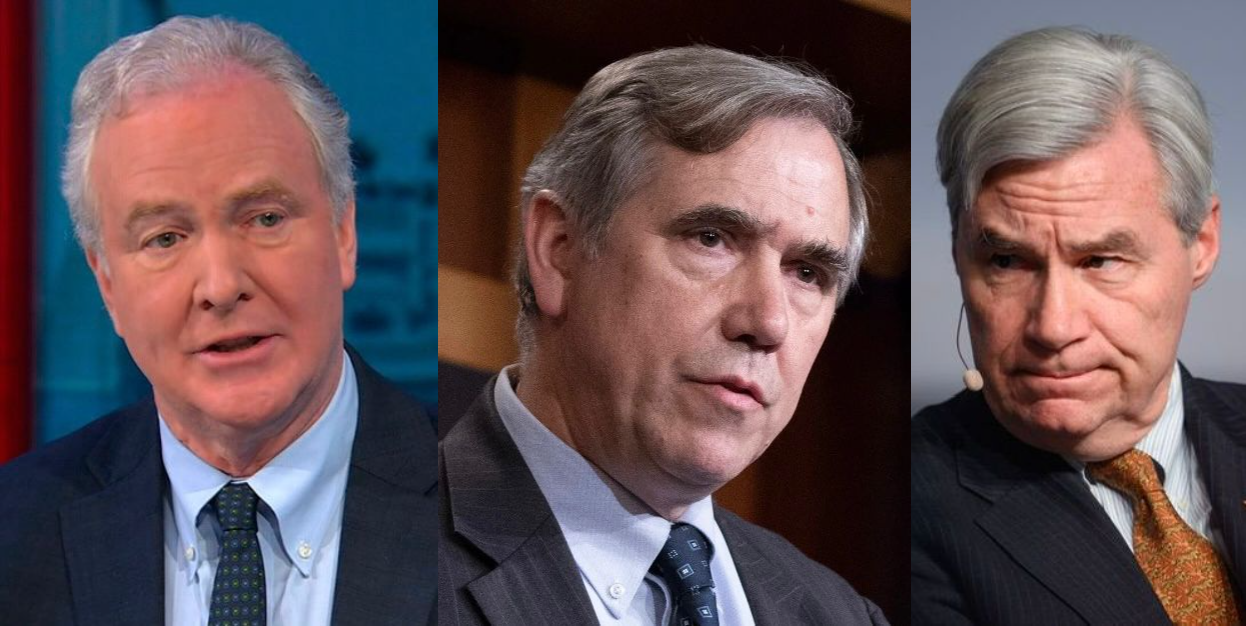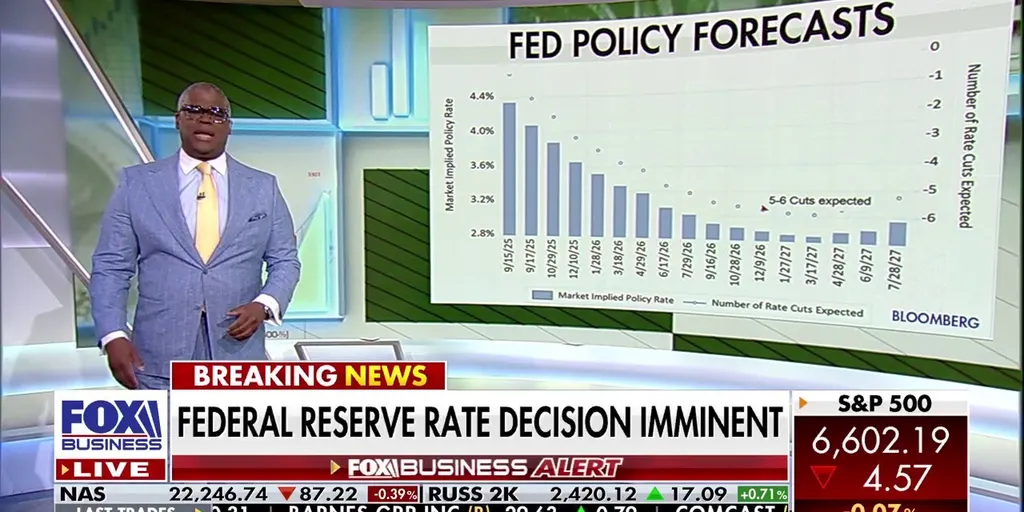By KNEWS
Copyright kaieteurnewsonline

U.S. Senators probing Exxon’s Guyana tax deal
Sep 24, 2025
News
…demand answers on possible massive tax evasion in America
Kaieteur News – Three United States (U.S) Senators on Tuesday wrote to the Chief Executive Officer (CEO) of ExxonMobil, Darren Woods about the company’s tax arrangements in Guyana.
The company, in joint venture with CNOOC and Hess (now Chevron), were contracted by the Government of Guyana (GoG) to produce hydrocarbons in the 26,800 square kilometer Stabroek Block.
In accordance with terms of the 2016 Production Sharing Agreement (PSA) the companies pay no taxes to the country. Guyana nonetheless issues a tax receipt, indicating that those obligations were met locally. This is frequently used to avoid double taxation in the country that the company is registered.
In a statement issued to the media, it was explained that U.S. Senators Sheldon Whitehouse, Chris Van Hollen and Jeff Merkley sent a letter on Tuesday to ExxonMobil CEO Darren Woods requesting information on the company’s accounting of its U.S. tax liability as a result of the 2016 Stabroek Block Petroleum Agreement.
“The letter raises questions about whether American taxpayers are subsidizing ExxonMobil’s foreign oil production in Guyana, which the company carries out in partnership with a Chinese state-owned company,” the statement said.
It was explained that current U.S. tax rules offer a loophole for big multinational oil companies drilling in a foreign country to shrink their tax bills. “Closing this loophole would save American taxpayers an estimated $71.5 billion over ten years,” U.S officials have said. The Senators noted, “We are concerned about the possibility that American taxpayers may be subsidizing ExxonMobil’s foreign oil production, which they do in partnership with a Chinese state-owned company”.
The trio made it clear that payments to a foreign government are not taxes and cannot qualify for tax credit.
“Payments to a foreign government in exchange for an economic benefit [such as the right to extract oil and gas] are not considered taxes at all and thus cannot qualify for a U.S. foreign tax credit. However special rules allow ‘dual capacity’ taxpayers to divide up such payments into creditable taxes and non-creditable payments.
While it is not difficult to distinguish between taxes and payments for economic benefits, current rules allow contracts to be structured in a way that blurs the distinction. This loophole is a particular boon to big multinational oil companies,” added the senators.
According to a 2021 IMF report, U.S. effectively subsidises Big Oil and the fossil fuel industry to over US$600 billion annually. Congressional Republicans added even more subsidies with their Beautiful-for-Billionaires bill, which included a US$167 billion tax giveaway to companies like ExxonMobil that ship jobs and profits overseas. In February, Whitehouse and Rep. Lloyd Doggett (D-TX) reintroduced the No Tax Breaks for Outsourcing Act which would reverse the special tax rate for offshore profits that’s half the domestic rate.
Congressional Republicans also included a special US$427 million carveout for the oil and gas industry to shirk the Corporate Alternative Minimum tax that Democrats included in the Inflation Reduction Act to prevent companies from lowering their liability by abusing tax loopholes. Whitehouse and other Senate Democrats sent a letter in early September to Treasury Secretary Scott Bessent slamming Treasury’s decision to create new loopholes in the corporate alternative minimum tax for the largest and wealthiest corporations.
In the letter the senators referenced a 2024 Treasury Department proposal, which they said would have closed this loophole by limiting the portion of a payment that would qualify for a U.S. FTC to the equivalent amount of tax that the dual capacity taxpayer would have owed the foreign government if it was a non-dual capacity taxpayer. “In other words, it would prevent a company like ExxonMobil from shrinking its U.S. tax bill by claiming a larger U.S. FTC than any other company operating in the country that was not paying for the right to drill on land owned by Guyana. Closing this loophole would save U.S. taxpayers an estimated $71.5 billion over ten years,” the senators wrote.
They added: “Big oil companies like ExxonMobil do not need any more government subsidies. According to a 2021 IMF report, U.S. effective subsidies to the fossil fuel industry are over $600 billion annually. Republicans added even more with their “One Big Beautiful Bill Act,” which included a $167 billion handout to companies like ExxonMobil that ship jobs and profits overseas, as well as a special $427 million carveout for the oil and gas industry to limit or avoid the Corporate Alternative Minimum tax that is intended to prevent companies from erasing their tax bill with special breaks,” the letter read.
As such, the senators said they would like to better understand whether U.S. tax dollars are subsidising “your partnership with China to drill for oil overseas. We ask that you answer the following questions about how the 2016 PA with the Government of Guyana has affected ExxonMobil’s U.S. federal tax liability by no later than October 23, 2025:
Based on Article 15.4 of the PA, did ExxonMobil provide income tax returns to the Government of Guyana, and for which years? Did ExxonMobil directly pay the Government of Guyana any income tax in 2024 and/or 2023, or did the Government of Guyana make such payments on ExxonMobil’s behalf out of the government’s share of profit oil?
For any income tax payments to Guyana made by ExxonMobil or on its behalf, what portion, if any, did ExxonMobil claim as U.S. FTCs in 2024 and/or 2023?
Did ExxonMobil claim any U.S. FTCs on any payments to the Government of Guyana in 2024 and/or 2023?
If ExxonMobil claimed any U.S. FTCs in 2024 and/or 2023 on payments to the Government of Guyana, please explain what provisions of the U.S. Internal Revenue Code or regulations the company used to justify the claim and provide a model of how the calculation of creditable tax was made using illustrative numbers that are consistent with actual results.
If U.S. FTCs were claimed on any payments to the Government of Guyana, how much did they lower the company’s U.S. federal tax bill for 2024 and/or 2023?
Does the 2016 PA between ExxonMobil and Guyana make a distinction between taxes owed to the Government of Guyana and payments for economic benefits?
a. If so, please provide the specific language and ExxonMobil’s interpretation of how it affects your U.S. federal tax liability under current rules.
What was ExxonMobil’s rationale for including CNOOC as a partner in its 2016 PA with the Government of Guyana?
Whitehouse and other Senate Democrats sent a letter in early September to Treasury Secretary Scott Bessent slamming Treasury’s decision to create new loopholes in the corporate alternative minimum tax for the largest and wealthiest corporations.
In 2024, ExxonMobil Guyana Limited (EMGL) the operator of the Stabroek Block was granted a tax waiver by the GoG amounting to over US$1.3B. This is according to the company’s financials which indicate a tax expense of GY$260,155,788,763 for last year alone. During a media conference with local journalists to discuss the company’s performance, EMGL refused to field questions on the tax certificates issued by the GoG and directed journalists to government officials.
The sweetheart deal Exxon signed in 2016 states in Article 15.1 that the Contractor (ExxonMobil Guyana Limited) as well as its affiliates shall not be subjected to tax, value-added tax, excise tax, duty, fee, charge, or impost in respect of income derived from petroleum operations, property held or transactions except as specified under the agreement.
Further, Article 15.4 states that the sum equivalent to the taxes owed by the company will be paid by the Minister responsible for Petroleum to the Commissioner General of the GRA. It should be noted that the contract also allows for the issuing of a receipt to ExxonMobil, indicating that it has met the local tax requirements to avoid the burden of double taxation.
Guyana loses
Kaieteur News had reported that the since oil production commenced in December 2019, the country lost over US$10B in taxes to the Stabroek Block Co-Venturers, as a result of the tax holiday granted by the 2016 Petroleum Agreement. During the same period, the country’s Natural Resource Fund (NRF) received payments totaling just over US$6B, inclusive of profits and royalty.
According to the December 2024 NRF report, a total of US$6,049,759,409 was paid into the NRF since 2019, including US$786,190,162 in royalty. This therefore means that Guyana and Exxon shared approximately US$10.5B in profits during the period.
It can further be deduced a whopping US$42B in revenue was generated between December 2019 and December 2024, since 75% of the total revenue was deducted by ExxonMobil for cost recovery. As such, at a 25% tax rate, it would mean that Guyana lost over US$10B in taxes to the Stabroek Block partners alone in five years.
Exxon defends
It was reported that EMGL President, Alistair Routledge defended the local tax arrangement. He said the country is ultimately receiving taxes through the profit share arrangement and 2% royalty requirements imbedded in the deal.
Routledge told Kaieteur News, “In effect, that profit-sharing royalty is tax. In other systems like whether you are running a different local business, you pay corporate tax – in effect it is the same. It is giving a tax, a revenue to the state. It is remitting revenue to the state…while it is not called tax in the Petroleum Sharing Agreement in effect that’s what it is. It is payments to the state in lieu of there being a tax agreement.”
Read more here:
https://kaieteurnewsonline.com/2025/02/13/despite-not-paying-taxes-exxon-boss-says-profit-sharing-and-royalty-is-same-as-giving-guyana-tax/
Darren Woods, evading taxes, ExxonMobil, Stabroek Block, US senators



